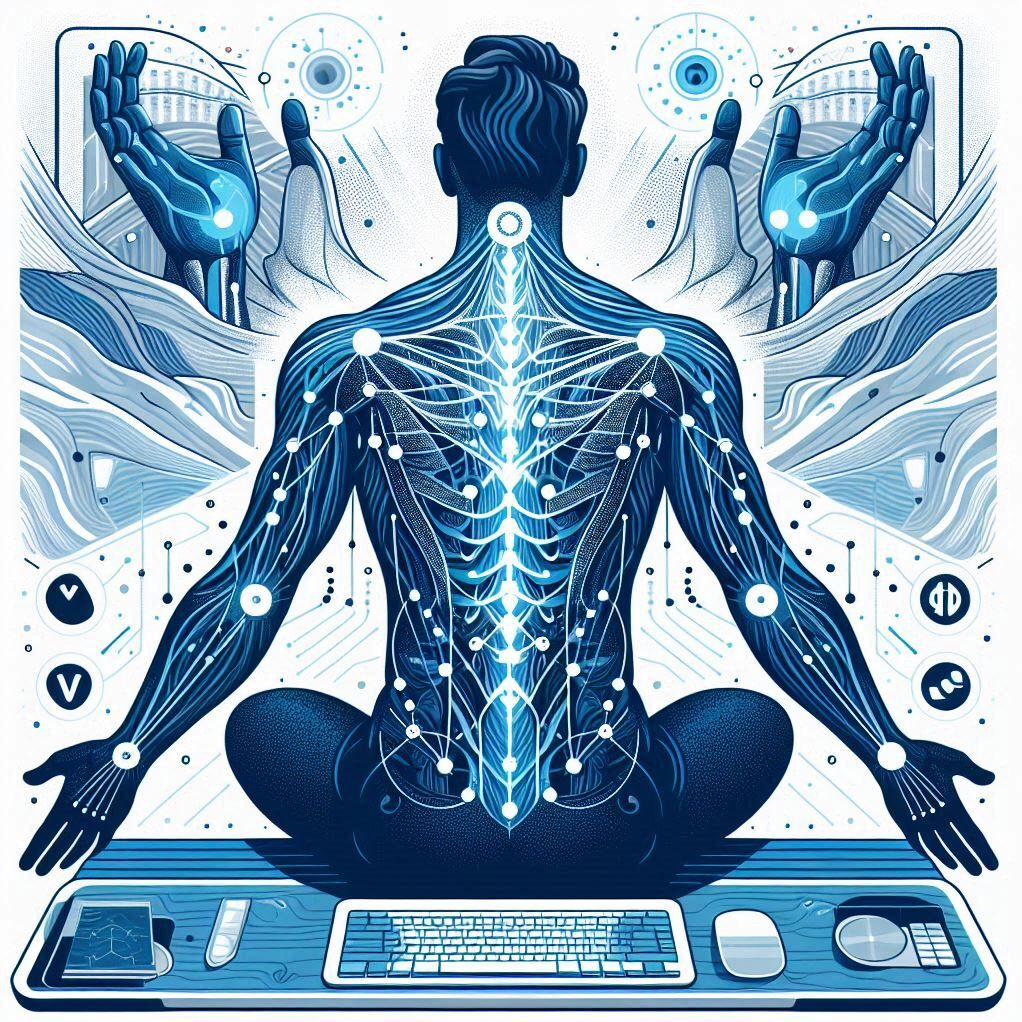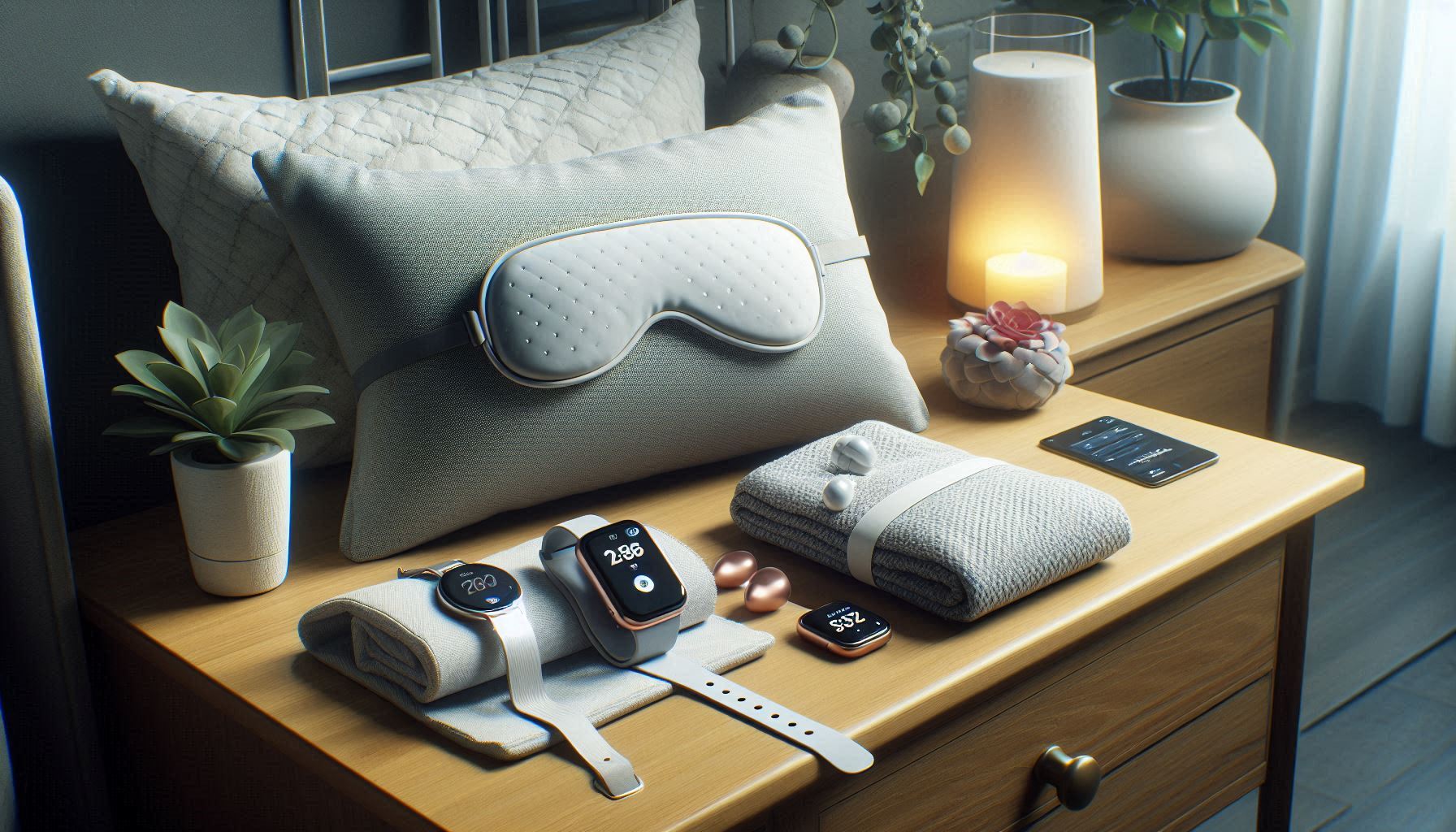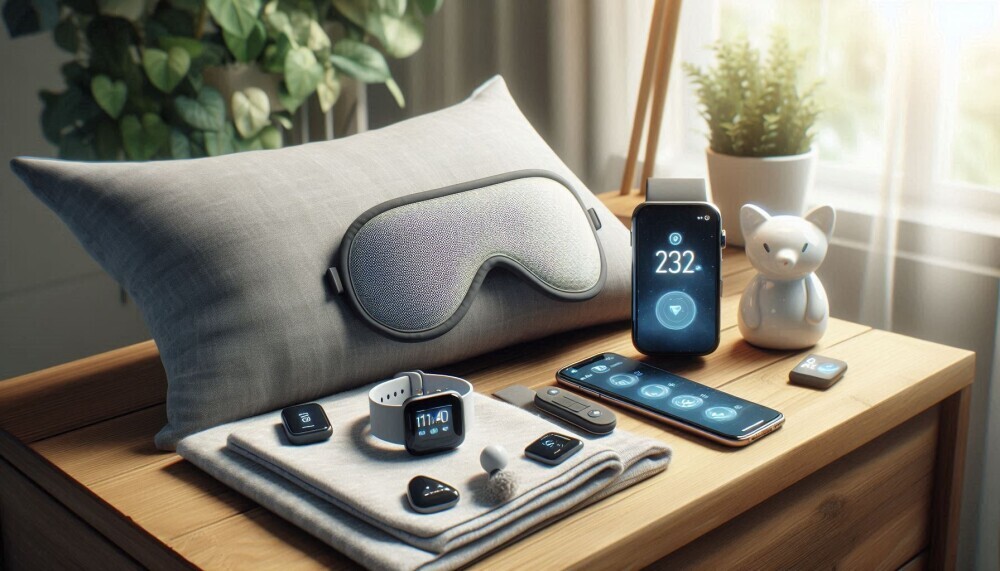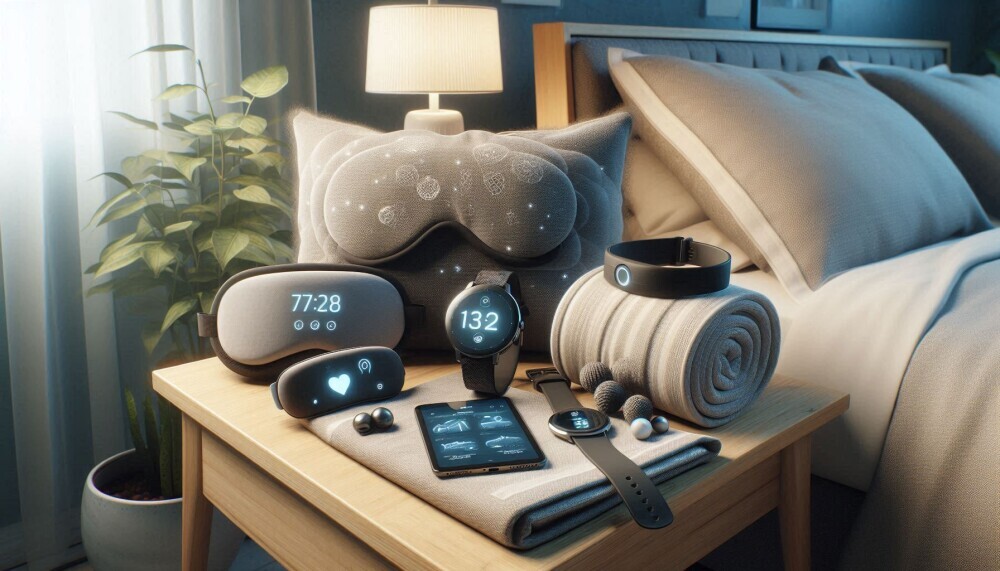Millions of people now use a sleep monitor to track their sleep behaviours and patterns. Learning how to use a sleep monitor correctly is important. In this article, we shall be looking at How To Get The Best From Your Sleep Monitor. Are you a sleep monitor user? If you are, please let us know your thoughts about your device in the comments section at the bottom of the article. Let’s get cracking!
Introduction
In a world that celebrates hustle, bustle and productivity, quality sleep often gets left behind. Yet, it’s one of the most important pillars of good health. If you’ve recently invested in a sleep monitor, or are thinking about it, you’ve already taken a vital step toward better rest and well being.
Sleep monitors are more than just wearables with flashy charts. When used properly, they can reveal patterns, detect sleep disturbances, and even help improve sleep hygiene. This guide will show you how to get the most out of your device, making every night’s sleep better than the last.
🧠 Why Sleep Tracking Matters
Sleep plays a critical role in memory, mood, recovery, and immune function. Understanding how much deep, REM, and light sleep you’re getting can:
- Help you make better lifestyle choices
- Identify stress related sleep interruptions
- Highlight habits that improve or harm your rest
Whether you’re dealing with insomnia, training hard, or just want to wake up more refreshed, knowing your sleep data is a game changer.
🛠️ How To Get The Best From Your Sleep Monitor
1. Choose the Right Device
Whether it’s a smartwatch, smart ring, or dedicated sleep tracker, pick one that suits your comfort, sleep style, and data needs. Look for features like:
- REM and deep sleep detection
- Heart rate and SpO2 monitoring
- Sleep score and insights
- Smart alarms
2. Wear It Correctly
Make sure your device is snug (not tight), especially if it uses optical sensors. Some smart rings or wristbands work better when worn consistently on the same finger or wrist.
3. Sync Your Data Regularly
Don’t let your sleep data sit in the device. Sync it with its mobile app daily for accurate trend tracking and personalized insights.
📊 Interpreting Sleep Data: What to Look For
Sleep monitors give tons of info, but here’s what actually matters:
✅ Sleep Stages
Your sleep will cycle through light, deep, and REM stages. Aim for:
- Deep sleep: 13 to 23%
- REM: 20 to 25%
- Light sleep: 50 to 60%
✅ Sleep Duration
Most adults need 7 to 9 hours. Consistency is key. Don’t just catch up on weekends.
✅ Sleep Efficiency
This tells you how long you’re asleep versus how long you’re in bed. A score above 85% is ideal.
✅ Heart Rate & SpO2
Some devices track your heart rate variability (HRV) and blood oxygen saturation, which can hint at stress levels or breathing disturbances.
🧘♂️ Optimize Your Sleep Habits With Data
Use your sleep data to adjust daily habits:
- Evening wind-down routines: Meditation or light reading can improve REM sleep.
- Cut caffeine after 2 to 3 p.m.
- Go to bed and wake up at the same time every day.
- Adjust room temperature: 16 to 19°C (60 to 67°F) is ideal for sleep.
- Dim lights 1 hour before bedtime.
- Limit screen time to avoid blue light disruption.
⚙️ Features to Use for Better Results
Take full advantage of your device’s tools:
🕰 Smart Alarms
Wake up during a light sleep phase so you feel less groggy.
📈 Weekly Sleep Reports
Track trends instead of fixating on single nights.
🌙 Sleep Coaching
Many apps (e.g., Fitbit, WHOOP, Oura) offer guidance based on your data. Follow suggestions to experiment and improve sleep quality.
🧩 Integration With Other Apps
Connect with Apple Health, Google Fit, or fitness apps to cross reference your exercise and nutrition with sleep performance.
❓ Frequently Asked Questions
1. How accurate are sleep monitors?
They’re reasonably accurate for sleep stage patterns and duration, but not as precise as a sleep lab. Still, they’re great for spotting trends and identifying habits that work.
2. Do I need to wear it every night?
Yes! Consistency gives the best insights. Skipping a few nights is fine, but regular use is key.
3. Can sleep monitors detect sleep disorders?
Some can flag issues like irregular breathing, but they’re not medical devices. Always consult a doctor for diagnosis.
4. Should kids or teens use sleep monitors?
Only with supervision. They can help establish healthy routines, but avoid promoting screen dependency.
5. What if my sleep score is always low?
Review your evening habits, try stress reduction techniques, and give your body time to adjust.
6. Do I need a paid app subscription?
Some features are free, but advanced analytics, coaching, or long-term reports may require a subscription (like Fitbit Premium or Oura Membership).
💡 Pro Tips: How to Get the Best From Your Sleep Tracker
- Be patient: Sleep improvement takes time. Use your tracker to guide slow, steady changes.
- Don’t stress the numbers: They’re tools, not judgments. Poor nights happen. Try to use them as a learning moment.
- Compare weekdays vs weekends to detect social jet lag or recovery needs.
- Track naps: Some devices offer nap tracking. Short, timed naps can improve mood and alertness.
- Update firmware & app: Sleep algorithms improve with updates. Keep everything current.
Conclusion
Getting a sleep monitor is a smart move toward better rest, but the magic happens when you use it well. It’s not about obsessing over numbers but understanding the patterns that impact your nightly rest.
With time, the data can help you adjust your lifestyle, build a stronger circadian rhythm, and feel more energized every day. Sleep smarter, not harder with the right device and informed habits.
Our Thanks!
Many thanks to you for taking the time to read this article on How To Get The Best From Your Sleep Monitor. We hope that you have found it to be both helpful and informative to help you get the maximum benefit from your sleep tracking device. If you would like further reading, please take a look through our blog! There are plenty of really helpful articles based on a range of wearable health tech device subjects. You might like our related article which is titled The 5 Best Sleep Monitoring Devices.
Please let us know in the comments which brand and type of sleep monitoring device you are currently using or plan to buy in the future!
**Here is a bit of transparency. Our website www.vertevia.com does contain affiliate links and Amazon links. So, if you did make a purchase through the website, we may receive a small commission. This is at no extra cost to you whatsoever. It’s just a way for you to support us as we continue to bring you top quality content**
All the best!
Eamon





